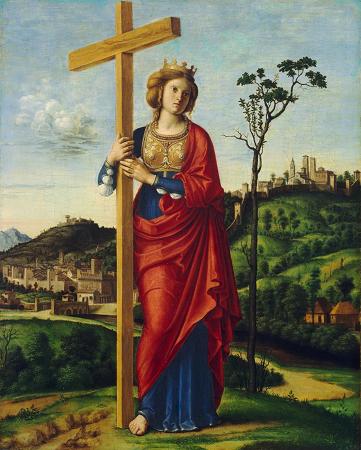Saint Anthony of Padua. Saint Anthony of Padua, born Fernando Martins de Bulhões-also known as Saint Anthony of Lisbon-was a Portuguese Catholic priest and friar of the Franciscan Order. He was born and raised by a wealthy family in Lisbon, Portugal, and died in Padua, Italy. Noted by his contemporaries for his powerful preaching, expert knowledge of scripture, and undying love and devotion to the poor and the sick, he was one of the most quickly canonized saints in church history. He was proclaimed a Doctor of the Church on 16 January 1946. He is also the patron saint of lost things. Fernando Martins de Bulhões was born in Lisbon, Portugal. While 15th-century writers state that his parents were Vicente Martins and Teresa Pais Taveira, and that his father was the brother of Pedro Martins de Bulhões, the ancestor of the Bulhão or Bulhões family, Niccolò Dal-Gal views this as less certain. His wealthy and noble family arranged for him to be instructed at the local cathedral school. At the age of 15, he entered the Augustinian community of Canons Regular of the Order of the Holy Cross at the Abbey of Saint Vincent on the outskirts of Lisbon. In 1212, distracted by frequent visits from family and friends, he asked to be transferred to the motherhouse of the congregation, the Monastery of the Holy Cross in Coimbra, then the capital of Portugal. There, the young Fernando studied theology and Latin. After his ordination to the priesthood, Fernando was named guestmaster at the age of 19, and placed in charge of hospitality for the abbey. While he was in Coimbra, some Franciscan friars arrived and settled at a small hermitage outside Coimbra dedicated to Saint Anthony of Egypt. Fernando was strongly attracted to the simple, evangelical lifestyle of the friars, whose order had been founded only 11 years prior. News arrived that five Franciscans had been beheaded in Morocco, the first of their order to be killed. King Afonso ransomed their bodies to be returned and buried as martyrs in the Abbey of Santa Cruz. Inspired by their example, Fernando obtained permission from church authorities to leave the Canons Regular to join the new Franciscan order. Upon his admission to the life of the friars, he joined the small hermitage in Olivais, adopting the name Anthony, by which he was to be known. Anthony then set out for Morocco, in fulfillment of his new vocation. However, he fell seriously ill in Morocco and set sail back for Portugal in hope of regaining his health. On the return voyage, the ship was blown off course and landed in Sicily. From Sicily, he made his way to Tuscany, where he was assigned to a convent of the order, but he met with difficulty on account of his sickly appearance. He was finally assigned to the rural hermitage of San Paolo near Forlì, Romagna, a choice made after considering his poor health. There, he had recourse to a cell one of the friars had made in a nearby cave, spending time in private prayer and study. One day in 1222, in the town of Forlì, on the occasion of an ordination, a number of visiting Dominican friars were present, and some misunderstanding arose over who should preach. The Franciscans naturally expected that one of the Dominicans would occupy the pulpit, for they were renowned for their preaching; the Dominicans, though, had come unprepared, thinking that a Franciscan would be the homilist. In this quandary, the head of the hermitage, who had no one among his own humble friars suitable for the occasion, called upon Anthony, whom he suspected was most qualified, and entreated him to speak whatever the Holy Spirit should put into his mouth. Anthony objected, but was overruled, and his sermon created a deep impression. Not only his rich voice and arresting manner, but also the entire theme and substance of his discourse and his moving eloquence, held the attention of his hearers. Everyone was impressed with his knowledge of scripture, acquired during his years as an Augustinian friar. At that point, Anthony was sent by Brother Gratian, the local minister provincial, to the Franciscan province of Romagna, based in Bologna. He soon came to the attention of the founder of the order, Francis of Assisi. Francis had held a strong distrust of the place of theological studies in the life of his brotherhood, fearing that it might lead to an abandonment of their commitment to a life of real poverty. In Anthony, however, he found a kindred spirit for his vision, who was also able to provide the teaching needed by young members of the order who might seek ordination. In 1224, he entrusted the pursuit of studies for any of his friars to the care of Anthony.
more...









